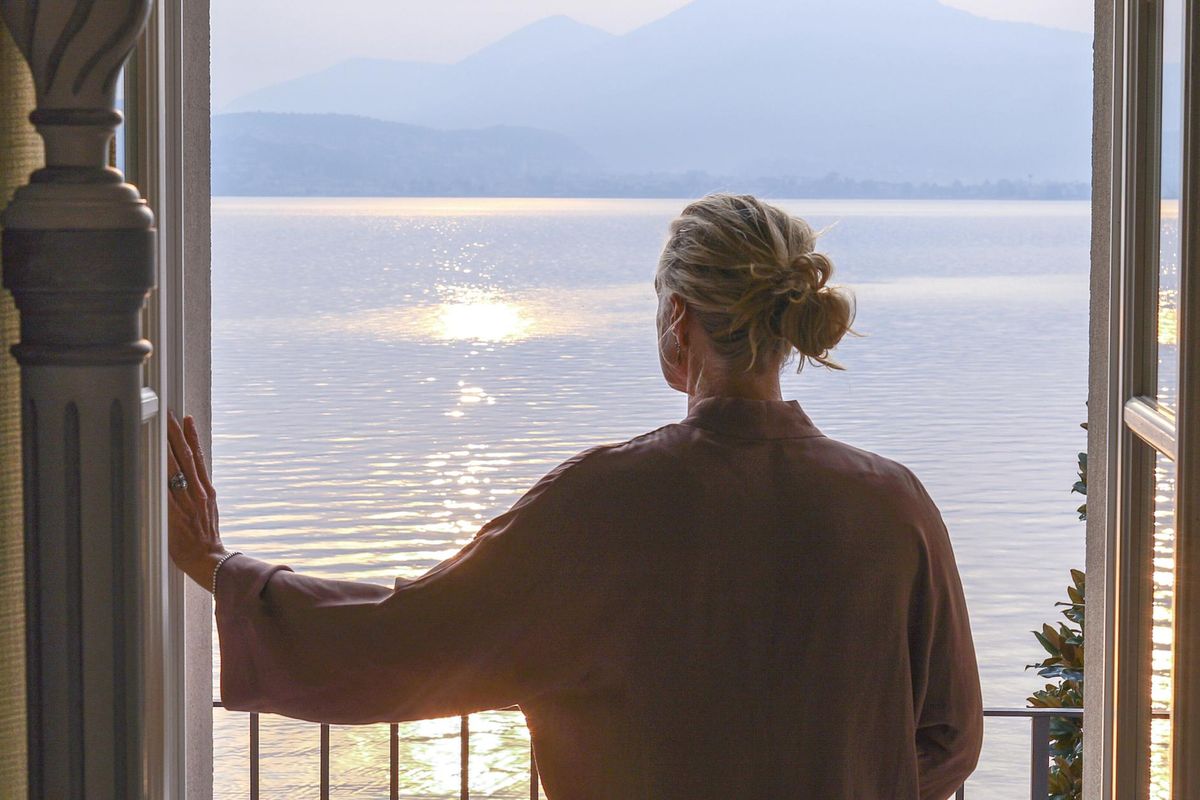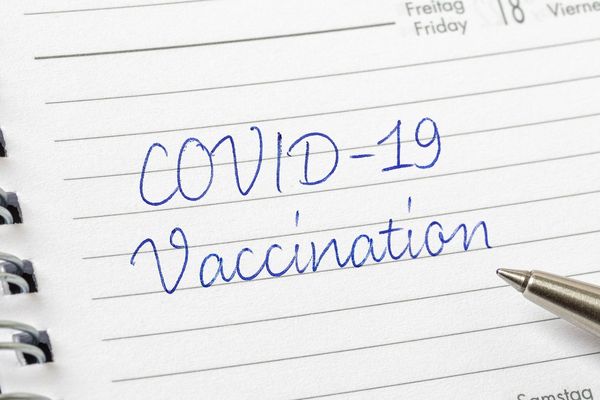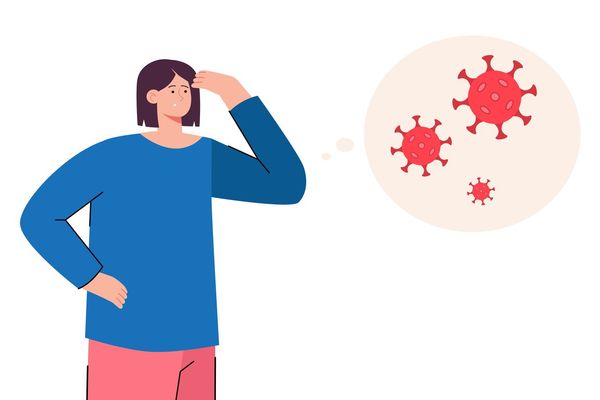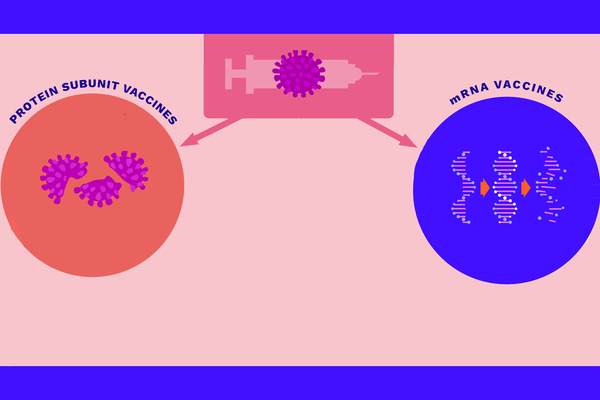With nearly 50% of its adult population fully vaccinated, the United States has generously eased its Covid-19 restrictions, with most states no longer even requiring masks indoors. The light at the end of the pandemic tunnel is finally in view, and it seems we can at last begin to enjoy some semblance of normalcy.
This is good, right?
That's what I keep telling myself as I wade through a swamp of emotions — a messy mix of anxiety, guilt, anger, sorrow and relief. I lost my dad to Covid in January, and while I thought the country's reopening would help shake me loose from some of my grief, it has only knitted me deeper into it and made the process more complex.
I want to move forward with the rest of society, but I also want to stop and scream to the crowds, "We just lost more than 600,000 people in the United States alone — one of my most beloved among them — and now it's back to concerts and barbecues?!"
As Terri Mallioux, 54, of Fayetteville, Arkansas, puts it, grieving a loss to Covid is stressful and lonely — and she knows all too well. Almost exactly one year ago, she lost both her parents to Covid within a 30-hour timespan.
"Not a day goes by that something doesn't take me back to then, to the images of their agonizing deaths," Mallioux said. "I feel that people don't really know how horrible Covid is until they've lost someone to it. It's a club that no one wants to be in, and yet, here we are."
Things that felt easy in the “before” times now feel difficult
Mallioux and I each struggle with aspects of the "before" that used to be no big deal. For instance, Mallioux has been prone to "Covid policing" friends (and strangers) who dismiss Covid as a mere flu or, more dangerously, a political hoax. For a long time, she felt not only anxious but paranoid about getting sick. Now that she is vaccinated, she finds her reactivity easier to manage and is no longer as afraid of falling ill. In regard to Covid deniers, she's reached a place of acceptance, knowing she can't change their minds.
For me, it is still mostly impossible to find joy in the public activities I enjoyed before Covid, like hanging out in coffee shops or browsing in bookstores. I am overcome with sadness when realizing that the world can never really go back to normal — because in a normal world my father is alive.
To Mallioux's point, the Covid loss club is a terrible club to be in, but while it feels lonely, there are far too many other members. More than 600,000 Americans have died from Covid, and though the vaccine has helped dramatically lower the risk of becoming seriously ill with the virus, people around the world are still dying from it.
In some way, we’re all grieving losses to the pandemic
With all this in mind, it would be odd if we didn't find coping with reopening difficult while mourning those we lost to Covid.
Additionally, as therapist Dr. Heidi Schreiber-Pan highlights, you needn't have lost a loved one to Covid to be experiencing a form of grief: You may have lost a wedding, a job, a friendship or any number of other meaningful things because of the pandemic.
Any kind of grief can lead to complicated emotions and heightened stress.
"Human beings often feel multiple things at once," said Dea Dean, a licensed professional counselor. "This is especially true when grieving. We often have conflicting motives and conflicting beliefs. You have to first accept that while part of you is feeling relief, you may also be feeling sadness, anger, bargaining, denial — all of it."
Both Dean and Schreiber-Pan note that stress and difficult feelings in general are perfectly normal for everyone right now as we remerge from more than a year of isolation. What's more, we've got the worrisome Delta variant spreading and don't really know if or for how long a full reopening is wise or tenable.
Notice and validate the emotions
"The most important thing we can do when we feel big emotions is to notice what we're feeling," Dean said. "When we're on autopilot, we're in danger of being reactive and of not self-regulating. We must first be mindful of what it is we're experiencing and name that feeling."
Dean explains that you can then validate the feelings with an inner dialogue — saying something like, "It's valid that I'm feeling this way because I lost my loved one to Covid, and they are worthy of this response."
Honor the dead and set yourself free
Most of us didn't get to hold proper funerals or other communal rituals for the people we lost to Covid. Schreiber-Pan and Dean find that it can be important to do something in person to honor those who have passed. Typically, you'd want to hold a ceremony with others, but if you're not up for a group affair, it's perfectly fine to do something by yourself.
Mallioux found some closure in going into the ocean alone and letting the waves support her as she let her emotions flow.
"I screamed and cursed and cried," Mallioux said. "I told my mom and dad that we did everything we could. I said I was sorry and that my sister and I were being strong. Then I took my parents' ashes back into the ocean with me, said a prayer and let them go. It was a very peaceful feeling. It felt like the funeral I never got to have."
Cliché as it sounds, taking care of ourselves is critical as we march through grief and big — perhaps clashing — emotions. When you're feeling stressed out or caught in a storm of mixed feelings, Schreiber-Pan recommends placing your hand on your heart and sending yourself compassion.
"Build your own internal ally with yourself and say, 'We can do this together.'"
- Grieving the Death of My Sister ›
- My Long Covid Symptoms Were Chalked Up to Grief After I Lost My Partner ›
- Grief and Loss Are Different When You’re the Caregiver ›
- Expert Advice on Getting Through Your First Holiday Season After the Loss of a Loved One ›
- How to Get Through the Holidays When Dealing with Grief ›
- Grieving is Hard, Necessary Work and Coronavirus Makes it Harder - HealthyWomen ›







